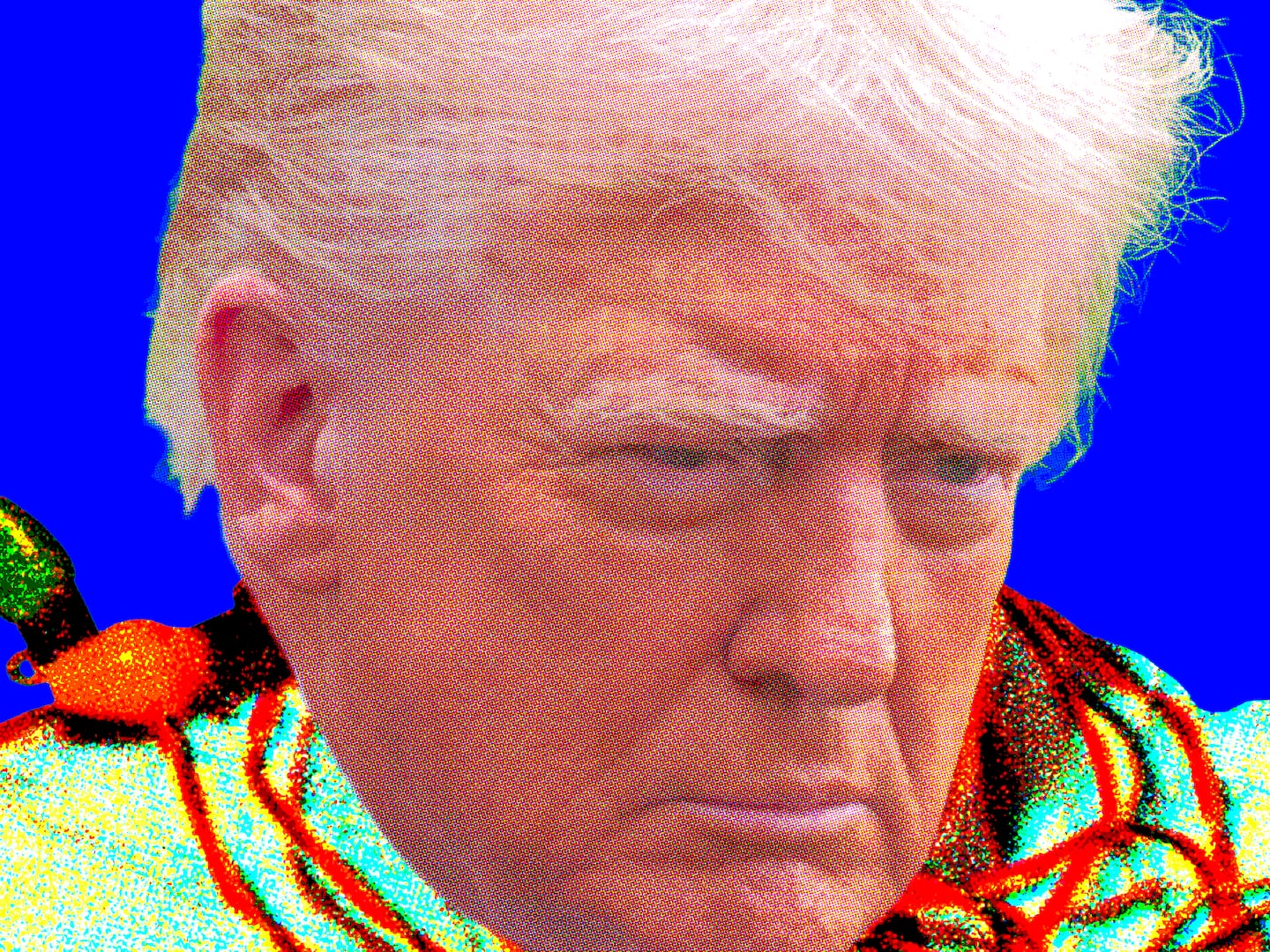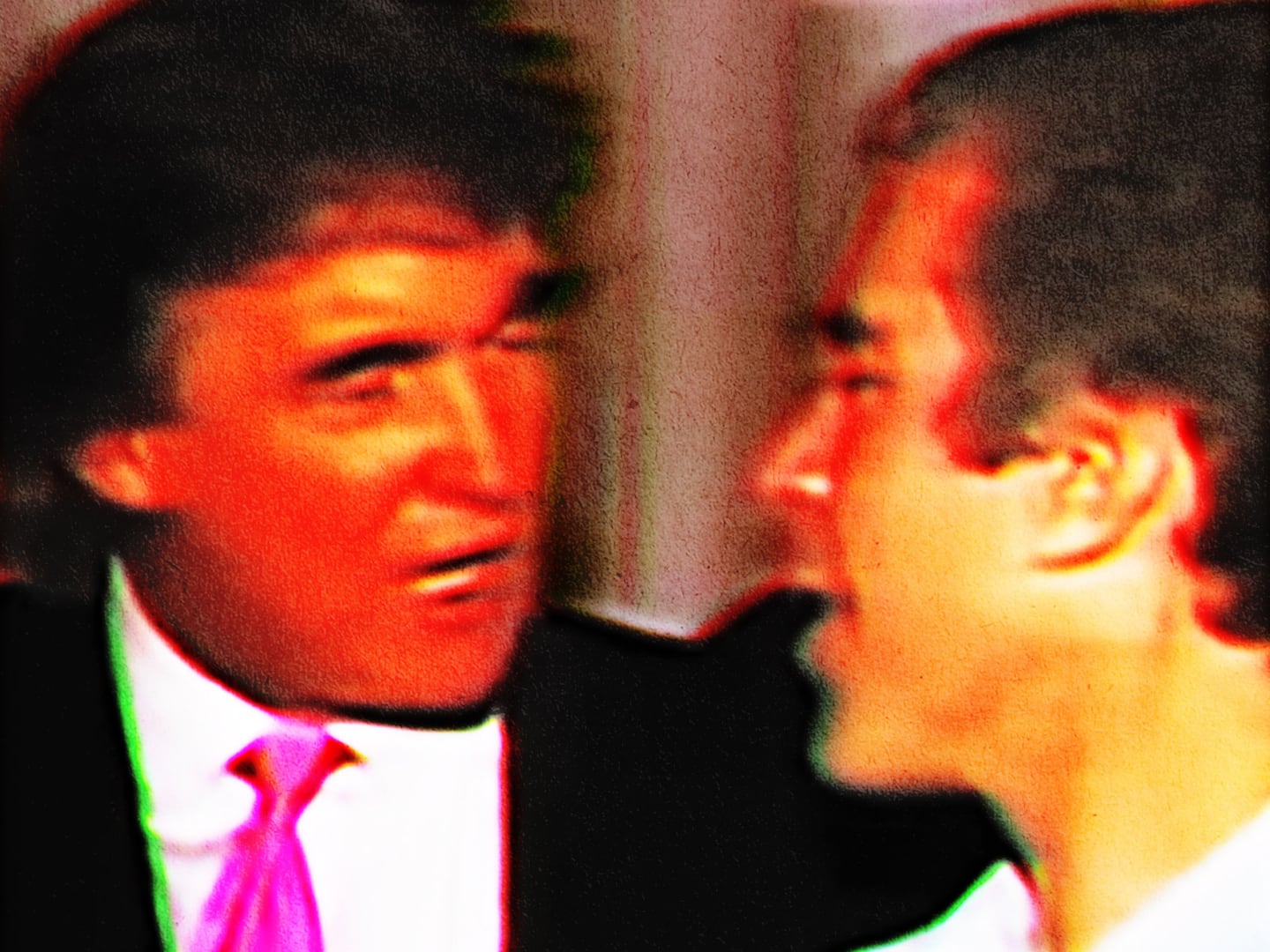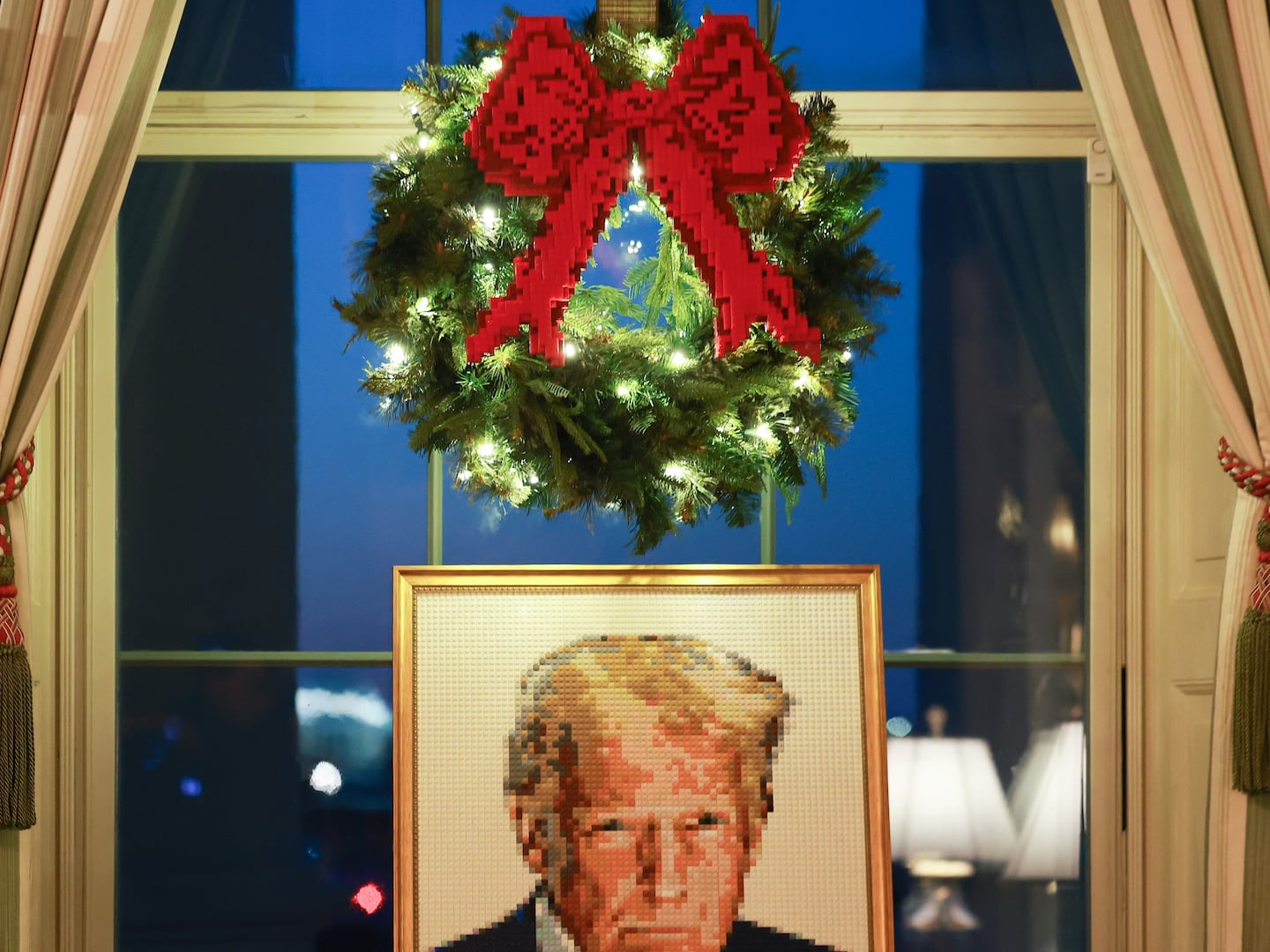
Plus, read more insight on Iran's election from other Daily Beast writers.
Rumors of the demise of Iran’s uprising may be premature. On Sunday, thousands of protesters, including Mousavi’s wife, Zahra Rahnavard and some family members of Ahmadinejad's bête noire, Hashemi Rafsanjani, marched through the streets of northern Tehran chanting, “Where is my vote?”
(You can see a video of the rally here.)
The presence of the prominent women in the rally, including Rafsanjani’s outspoken daughter, Faezeh, who founded Iran’s most popular feminist magazine, Zan (banned by the government in 1999), seems to have left the police and security personnel outnumbered and unsure how to respond. Mousavi himself addressed the crowd, by cellphone—his voice, thin and grainy, amplified by a megaphone.
The fate of Iran depends on which way the clerical establishment falls.
Earlier in the day, Mousavi posted a statement on his Web site urging his followers not to give in to the “lies and fraud” perpetrated against the Iranian people but to show restraint and practice nonviolent tactics in their demonstrations. “The revolution is your legacy,” he wrote. “Be hopeful that you will get your right and do not allow others who want to provoke your anger... to prevail.”
However, despite continuing protests in Tehran, Shiraz, Isfahan, Tabriz, and Mashad, it is clear that the power struggle inside Iran has shifted from the streets to the backrooms of the government. Indeed, the sheer brutality of the crackdown on protesters has polarized Iranian politics at all levels, forcing Iran’s political and religious elites to take sides.
Yesterday, Ali Larijani, the speaker of Iran’s parliament and a close confidant of Supreme Leader Ayatollah Ali Khamenei, intensified his criticism of both Ahmadinejad and the tactics of the security forces allied with the Revolutionary Guard. Larijani vowed to form a committee to investigate reports of abuse perpetrated against peaceful Iranian demonstrators.
Larijani had previously accused the Guardian Council of siding with Ahmadinejad before the elections, an implicit allegation of election fraud. “Although the Guardian Council is made up of religious individuals,” Larijani told the IRIB, Iran’s official broadcasting agency, “I wish certain members would not side with a certain presidential candidate.” Ahmadinejad’s allies in parliament, rattled by Larijani’s comments, are now calling for his impeachment, an unlikely scenario given the speaker’s close ties with Khamenei, but yet another indication of the deep divisions that have formed inside Iran’s government.
Meanwhile, in comments broadcast Sunday on state television, Khamenei struck a softer tone than he did in his Friday address last week when speaking of the protesters. “I urge both sides not to provoke the sentiments of the youth and refrain from pitting people against each other. This united nation should not be divided, and groups should not be provoked to act against each other. There are legal ways for resolving issues.”
Khamenei’s first public statements in a week seemed timed to correspond with Rafsanjani’s first public appearance since the election. Praising the decision by Khamenei to extend an obviously meaningless deadline for Iran’s Guardian Council to investigate allegations of electoral fraud, Rafsanjani said he hoped that “the authorities in charge are able to investigate all legal challenges with cooperation of candidates and in keeping with utmost accuracy, honesty, and fairness.”
The oddly conciliatory and seemingly coordinated statements by the two men, who by all accounts loathe each other and have been working to bring the other down during this entire crisis, may indicate that while the deal to stave off a crisis by allowing a runoff election between Mousavi and Ahmadinejad may have fallen through (thanks largely, it appears, to the rejection of the proposal by the Revolutionary Guard), there may still be an effort under way to find a compromise that would satisfy both Khamenei and Rafsanjani.
Either way, it now appears likely that the fate of Iran depends on which way the clerical establishment falls. If they can be convinced that the rise of the Revolutionary Guard is a threat to their stewardship of the Islamic republic, then they will side with the reformers aligned with Rafsanjani and Mousavi, if for no other reason than to remain significant. In that case, Iran may begin to resemble China, a country ruled by an oligarchy but with greater freedoms for its people and open to the international community.
If, however, the clerics side with Khamenei, who every day looks more like an aged patsy of the Revolutionary Guard, then Iran could conceivably become a military state akin to North Korea or Myanmar.
Still, the late-night call-and-response of Allah-u Akbar, or “God is Great,” continues to bounce from rooftop to rooftop, increasingly punctuated with the call of “Death to Khamenei!”
Reza Aslan, a contributor to The Daily Beast, is assistant professor of creative writing at the University of California, Riverside and senior fellow at the Orfalea Center on Global and International Studies at U.C. Santa Barbara. He is the author of the bestseller No god but God and How to Win a Cosmic War.






